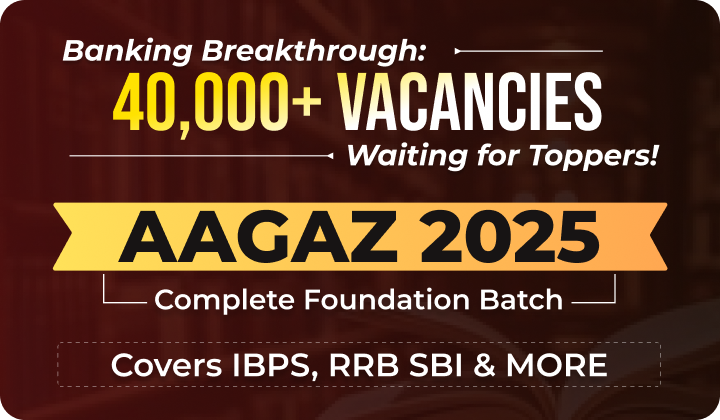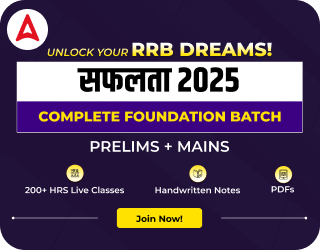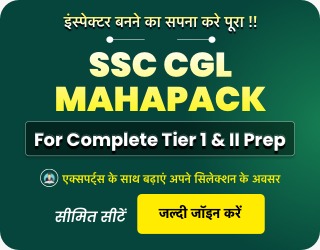Table of Contents
In India, numerous banking exams are conducted annually by various organizations to recruit candidates for a wide range of positions in the banking sector. These exams are crucial for selecting eligible individuals to manage and support the operations of both public and private banks. The fastest exam process, multiple exam options, good salary, job profile, and many other factors attract candidates to apply for these exams.
So, if you are also preparing for any Banking Exam in India, this guide is for you.
Bank Exams Conducted in India
As mentioned above, there variety of vacancies released by the government and private banks. In the table below, we have mentioned the popular Bank Exams in India.
| Conducting Organization | Exam Name | Posts Offered |
|---|---|---|
| IBPS (Institute of Banking Personnel Selection) | IBPS PO | Probationary Officer |
| IBPS SO | Specialist Officer | |
| IBPS Clerk | Clerk | |
| IBPS RRB | Office Assistant, Officer Scale I, II, III | |
| SBI (State Bank of India) | SBI PO | Probationary Officer |
| SBI SO | Specialist Officer | |
| SBI Clerk | Clerk | |
| RBI (Reserve Bank of India) | RBI Grade B | Officer Grade B |
| RBI Assistant | Assistant | |
| NABARD (National Bank for Agriculture and Rural Development) | NABARD Grade A | Assistant Manager |
| NABARD Grade B | Manager | |
| SEBI (Securities and Exchange Board of India) | SEBI Grade A | Assistant Manager |
| LIC (Life Insurance Corporation) | LIC AAO | Assistant Administrative Officer |
| LIC ADO | Apprentice Development Officer | |
| LIC Assistant | Assistant | |
| Other Banks | Cooperative Bank Exams | Various Posts |
| Private Bank Exams | Various Posts (e.g., HDFC, ICICI) |
Step-by-Step Guide for Bank Exam Preparation
If you are a serious aspirant, you must follow the preparation strategy shared below by us. You can also add some strategies by yourself or follow our strategy.
Understand the Exam Pattern and Syllabus:
First, get to know the exam pattern and syllabus. Bank exams usually have multiple stages like Preliminary, main, and an Interview. Each section covers specific subjects. Knowing what to study will help you focus on the right topics and avoid wasting time on irrelevant material.
Create a Study Plan:
Make a study plan that fits your daily routine. Divide your time wisely between different subjects. Spend more time on topics you find difficult, but don’t neglect your stronger areas. A good study plan should include daily study sessions, regular breaks, and time for revision.
Gather Study Materials:
Collect the right study materials such as recommended books, online resources, and previous years’ question papers. Reliable sources like Adda247 offer comprehensive content that can be very helpful. Having the right materials will make your study sessions more effective.
Focus on Fundamentals:
Start with the basics in subjects like Quantitative Aptitude, Reasoning Ability, English Language, and General Awareness. Make sure you understand the fundamental concepts before moving on to advanced topics. A strong foundation will help you solve more complex problems with ease.
Practice Regularly:
Practice is key to success. Solve previous years’ question papers and take mock tests regularly. This will help you get used to the exam format and improve your speed and accuracy. Analyzing your performance in these tests will show you where you need to improve.
Improve Speed and Accuracy:
Work on solving problems faster without making mistakes. Learn shortcuts and techniques to solve questions more quickly. The more you practice, the better you will get at managing your time during the actual exam.
Stay Updated with Current Affairs:
Read newspapers, magazines, and online news portals to stay updated with current events, especially those related to banking and finance. Make notes of important events, dates, and facts. Being well-informed will help you score better in the General Awareness section.
Revise Regularly:
Regular revision is crucial. Go over your notes and important topics frequently to ensure you remember them. Create short notes or flashcards for quick revision. Regularly revisiting the material helps reinforce your memory.
Stay Healthy and Positive:
Take care of your health by eating a balanced diet, exercising regularly, and getting enough sleep. A healthy body supports a sharp mind. Stay positive and motivated throughout your preparation. Believe in yourself and your ability to succeed.
Subject-wise Preparation Strategy
There are 4 major subjects in almost every bank exam- Quantitative Aptitude, General Awareness, English, and Reasoning. Check the detailed step-wise preparation strategy below.
Quantitative Aptitude
The topics included in the Quantitative Aptitude are- Number Series, Simplification, Data Interpretation, Percentages, Ratios, Time and Work, Profit and Loss, Speed and Distance, and Geometry, there are many other topics for which we recommend reading the official notification of that exam.
How to Prepare?
Now the question arises of how to prepare for Quant. Check the step-wise preparation strategy below.
Start with Basics
- Understand basic arithmetic operations: addition, subtraction, multiplication, and division.
- Learn fundamental concepts of percentages, ratios, and fractions.
- Focus on Important Topics:
- Spend more time on Data Interpretation and Simplification as they are high-scoring areas.
- Practice Time and Work, Speed and Distance, and Profit and Loss problems regularly
- Learn Shortcuts and Tricks
- Daily Practice
- Solve a variety of problems from different sources.
- Take timed quizzes to simulate exam conditions.
Revision Strategy
- Revise key formulas and shortcuts regularly.
- Go through solved examples to reinforce concepts.
- Practice a set of mixed problems weekly to maintain proficiency.
Reasoning Ability
The topics in the Reasoning Ability are Puzzles, Seating Arrangement, Syllogisms, Coding-Decoding, Blood Relations, Inequalities, and Logical Reasoning.
How to Prepare?
Check the Reasoning preparation strategy below.
- Understand Different Types of Questions.
- Familiarize yourself with each type of reasoning question.
- Start with simpler problems and gradually move to complex ones.
- Practice Puzzles Daily- Solve different types of puzzles to improve logical thinking.
- Focus on Seating Arrangements and Syllogisms as they are frequently asked.
Step-by-Step Approach:
- Break down complex problems into smaller, manageable parts.
- Use diagrams and charts to visualize and solve problems.
Regular Practice:
- Practice reasoning questions daily.
- Take mock tests and time-bound quizzes to enhance problem-solving speed.
Revision Strategy:
- Revisit tricky puzzles and practice them again.
- Review your mistake patterns and work on them.
- Take regular mock tests to keep your reasoning skills sharp.
English Language
English Language includes Reading Comprehension, Vocabulary, Grammar, Sentence Correction, Cloze Test, and Para Jumbles.
How to Prepare?
- Read Regularly– Read newspapers, magazines, and books to improve reading skills and vocabulary.
- Practice Reading Comprehension passages regularly.
- Brush Up on Grammar.
- Learn basic grammar rules: tenses, verbs, prepositions, and conjunctions.
- Practice grammar exercises to strengthen your understanding.
- Build Vocabulary- Learn new words daily and use them in sentences.
- Practice Writing- Write essays and summaries to improve your writing skills.
- Practice sentence correction and para jumbles.
Revision Strategy:
- Regularly revise grammar rules and vocabulary.
- Read and summarize articles to practice comprehension.
- Take weekly quizzes on grammar and vocabulary.
General Awareness
General Awareness includes Current Affairs, Banking Awareness, Static GK, and Economy-related news.
How to Prepare?
- Stay Updated with Daily News.
- Read newspapers and watch news channels regularly.
- Focus on banking and economy-related news.
- Focus on Key Areas:
- Study important events, dates, and personalities.
- Make notes on banking terms and financial updates.
- Monthly Magazines- Refer to monthly current affairs magazines for comprehensive coverage.
- Use online resources for the latest updates.
- Make Notes- Create short notes of important news and events.
- Use these notes for quick revision.
Revision Strategy:
- Regularly revise your notes and important events.
- Take online quizzes on current affairs and banking awareness.
- Review monthly magazines for missed updates.
Bank Exam Study Plan and Revision Strategy
We have shared a sample study plan to prepare for the Bank Exams. If candidates align with this study plan they can follow it or prepare a study plan of their own.
Month 1: Basics and Foundation
Week 1-2: Quantitative Aptitude
| Day | Topics Covered |
|---|---|
| 1-3 | Basic arithmetic operations, Number Systems |
| 4-6 | Percentages, Profit and Loss |
| 7 | Revision and practice problems |
| 8-10 | Ratios and Proportions, Averages |
| 11-13 | Time and Work, Time and Distance |
| 14 | Revision and practice problems |
Week 3-4: Reasoning Ability
| Day | Topics Covered |
|---|---|
| 15-17 | Introduction to Reasoning, Syllogisms, Blood Relations |
| 18-20 | Coding-Decoding, Direction Sense |
| 21-23 | Seating Arrangement, Puzzles |
| 24-26 | Inequalities, Logical Reasoning |
| 27-28 | Revision and practice problems |
Month 2: Intermediate Level
Week 1-2: English Language
| Day | Topics Covered |
|---|---|
| 1-3 | Grammar Basics: Tenses, Prepositions |
| 4-6 | Vocabulary Building: Synonyms, Antonyms |
| 7 | Revision and practice problems |
| 8-10 | Reading Comprehension |
| 11-13 | Cloze Test, Para Jumbles |
| 14 | Revision and practice problems |
Week 3-4: General Awareness
| Day | Topics Covered |
|---|---|
| 15-17 | Current Affairs (Daily News) |
| 18-20 | Banking Awareness |
| 21-23 | Important Dates and Events |
| 24-26 | Revision and practice quizzes |
| 27-28 | Static GK |
Month 3: Advanced Practice and Mock Tests
Week 1-2: Computer Awareness
| Day | Topics Covered |
|---|---|
| 1-3 | Basics of Computers: Hardware, Software |
| 4-6 | Internet and Networking Basics |
| 7 | Revision and practice problems |
| 8-10 | MS Office Applications |
| 11-13 | Computer Security and Recent Developments |
| 14 | Revision and practice problems |
Week 3-4: Full-Length Mock Tests and Revision
| Day | Activities |
|---|---|
| 15-17 | Full-Length Mock Test 1 and Analysis |
| 18-20 | Full-Length Mock Test 2 and Analysis |
| 21-23 | Revision of Weak Areas |
| 24-26 | Full-Length Mock Test 3 and Analysis |
| 27-28 | Final Revision and Relaxation |
Which Online Resource should be used for Bank Exam Preparation?
Online resources offer several benefits for bank exam preparation. They provide access to a wide range of study materials, including mock tests, previous years’ question papers, video lectures, and interactive quizzes. For bank exam preparation, reputable online platforms like Adda247 are highly recommended due to their comprehensive study materials, mock tests, and user-friendly interfaces such as mentorship, doubt-solving sessions and more.
Check out our Best Banking Exam Study Material 2024 For SBI, IBPS, and RBI Preparation below.
Best Banking Exam Study Material 2024 For SBI, IBPS, RBI Preparation

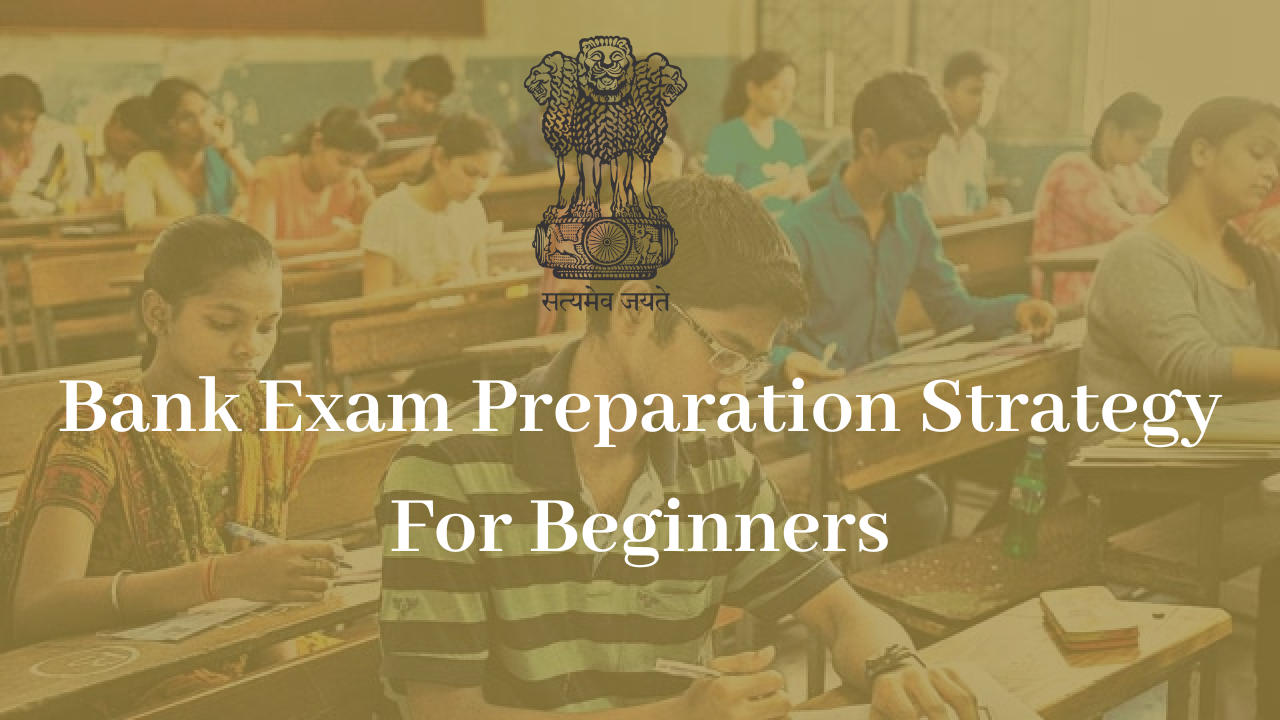

 PNB SO Exam Date 2025 Out, Syllabus, Pre...
PNB SO Exam Date 2025 Out, Syllabus, Pre...
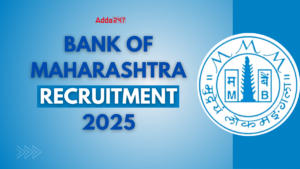 Bank of Maharashtra SO Recruitment 2025 ...
Bank of Maharashtra SO Recruitment 2025 ...
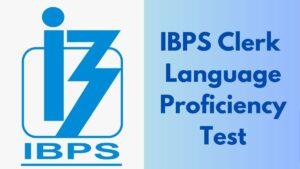 IBPS Clerk Language Proficiency Test 202...
IBPS Clerk Language Proficiency Test 202...
